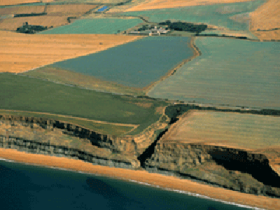BMF's Workshop on Marine Bill Raises Important Questions for our Industry

BMF members had an opportunity to influence the development of the Marine Bill last week. In a packed programme, Dave Bench, who heads up the DEFRA Marine Bill Team detailed the government proposals. The White Paper itself, which runs to 168 pages, was translated into four key sections:
1. Planning in the Marine Area
2. Licensing Marine Activities
3. Marine Nature Conservation
4. Setting up a Marine Management Organisation
The event covered how the Bill will potentially affect both the marine industry and its customers, whose activities are focused in the marine environment. Under the proposals, the government would set up a new Marine Management Organisation, which would take on the licensing of activities, such as dredging and marine construction, currently carried out by Marine Consents and Environment Unit. Ahead of this move, the Marine Consents and Environment Unit (MCEU) recently became part of the Marine and Fisheries Agency.
The new organisation is likely to be sited outside London, and would also be responsible for Marine Planning, which is central to the Bill. Crucially, through lively discussion, it became clear that it was not intended to recreate a land based planning system offshore. Instead, such planning would be based on bringing together relevant information about both the marine environment and socio-economic activities. The resulting plans would reflect priorities based on relevant government policies. So where will marine leisure fit in future government priorities?
How marine planning will work in practice is still to be decided. What's clear is that there's an opportunity to speed up the marine consenting process and there was discussion of keeping the amount of work linked to getting consents in proportion to the scale of development involved. This would be a real step forward if it could be made to work in practice.
There are controversial aspects, for example the suggestion to introduce byelaw making powers, for the regulation of some unlicensed activities, potentially including motorised recreation. With these powers would come a system of enforcement - current suggestions include a system of fixed penalty notices for offences committed under these proposed nature conservation byelaws.
BMF has serious concerns about the practicality of these proposals, and also wants to ensure that sound science is at the core of what's proposed. Importantly, DEFRA recognises that education is preferable, although it views the Bill as an opportunity to gain the above powers. Securing the future funding for the BMF and RYA's joint campaign the Green Blue is now looking crucial. See www.thegreenblue.org.uk for more information, alternatively, if you would like to know more about how your business might benefit from an involvement in the Green Blue contact Sarah Black, Project Manager on 02380 604273.
The afternoon considered the regulatory impact assessment that's been produced alongside the White Paper. It's here where the government is really looking for input from SMEs, specifically about how the Bill could impact on their businesses. BMF will be co-coordinating the views of its members to ensure they put in a robust response and continue to influence the Bill as it is drafted.
For further information or to to provide your views on the Marine Bill white paper in advance of the 8 June deadline please contact Brian Clark, Environment Executive on 01784 223644 or bclark@britishmarine.co.uk
 Send this story to a colleague
Send this story to a colleague


